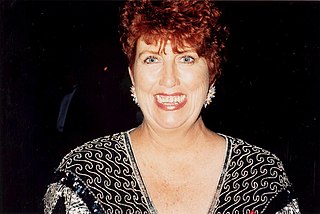A Quote by Bill Ayers
Jane Addams, founder of Hull House, once asked, "How shall we respond to the dreams of youth?" It is a dazzling and elegant question, a question that demands an answer--a range of answers, really, spiraling outward in widening circles.
Related Quotes
Every once in awhile, find a spot of shade, sit down on the grass or dirt, and ask yourself this question: “Do I respect myself?” A corollary to this question: “Do I respect the work I’m doing?” If the answer to the latter question is NO, then the answer to the former question will probably be NO too. If this is the case, wait a few weeks, then ask yourself the same two questions. If the answers are still NO, quit.
But in the end, science does not provide the answers most of us require. Its story of our origins and of our end is, to say the least, unsatisfactory. To the question, "How did it all begin?", science answers, "Probably by an accident." To the question, "How will it all end?", science answers, "Probably by an accident." And to many people, the accidental life is not worth living. Moreover, the science-god has no answer to the question, "Why are we here?" and, to the question, "What moral instructions do you give us?", the science-god maintains silence.
I was once doing a question and answer period with the novelist Jane Smiley in a bookstore and someone asked us what our processes were and Jane said hers and then I said mine and Jane said, "Well, if I had a student like that I'd force him never to write like that again because you could never write a novel in the way that you write poetry."
But the people at home if we're doing a town meeting or a town format. You have to answer the question that is asked. And what people at home are gauging how does this candidate respond to the questioner? Do they show respect to the questioner? Do they try to understand why the questioner is asking that? Do they respond to the question? Is there a human connection between the two? It's where Barack Obama beat Mitt Romney in 2012. He lost the voters on who was a stronger leader, who had a vision for the future, but on who cares about people like me, he trounced Mitt Romney.
If you ask a living teacher a question, he will probably answer you. If you are puzzled by what he says, you can save yourself the trouble of thinking by asking him what he means. If, however, you ask a book a question, you must answer it yourself. In this respect a book is like nature or the world. When you question it, it answers you only to the extent that you do the work of thinking an analysis yourself.
To be a scientist you have to be willing to live with uncertainty for a long time. Research scientists begin with a question and they take a decade or two to find an answer. Then the answer they get may not even answer the question they thought it would. You have to have a supple enough mind to be open to the possibility that the answer sometimes precedes the question itself.






































